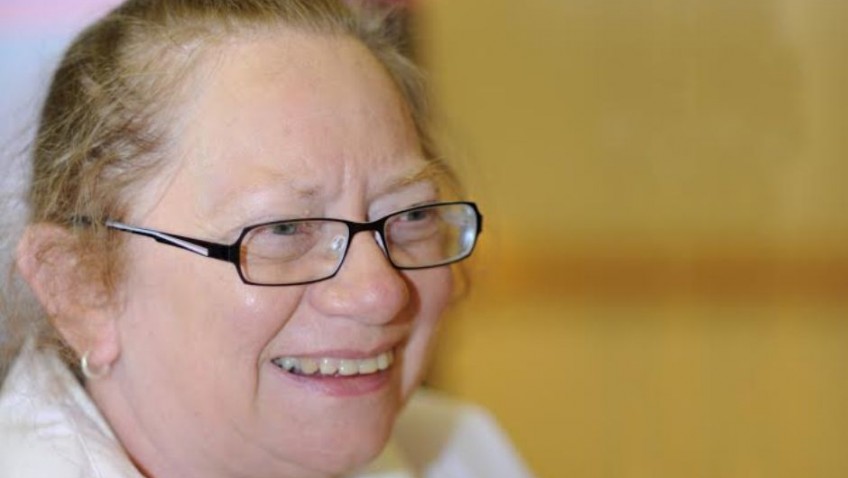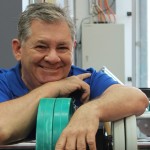September 2014 marks awareness month
Lisa Welsh (52) from Harborne in Birmingham was born with Charcot-Marie-Tooth (CMT), one of the most common, inherited neurological conditions in the world.
Named after the three scientists who discovered it, CMT is a currently incurable and steadily progressive condition.
It affects around 23,000 people in the UK, which causes muscle weakness in the lower legs and arms. Most people are diagnosed with CMT in adolescence or early adulthood, but for some people it is not identified until later in life because of a general lack of awareness in the medical profession.
Lisa’s father had CMT and her parents knew fairly soon after she was born that there was something strange with the way she walked. “Mum took me to the doctors,” said Lisa, “but he thought I was just copying the way my father walked. However, she persisted and I was officially diagnosed at the age of four.”
People who have CMT are often fatigued, walk awkwardly and endure twisted ankles, balance problems, pain and falls for many years without ever knowing why. As a result, they can be left feeling bewildered and extremely isolated. Fortunately, in Lisa’s case, early diagnosis meant that her school and her friends were aware of her condition, the problems it caused and how these problems could best be overcome.
“I decided to start using a manual wheelchair at the age of 12 and then using a power chair full time at 29. For me this wasn’t a step backwards but a step forwards. I manage my own care package which enables me to employ my PA workers so I can live my life the way I want to live it and get things done the Lisa way.
“My condition doesn’t stop me doing what I enjoy doing and I’m determined to make the most of what I have as you never know what tomorrow will bring.”
September marks Charcot-Marie-Tooth Awareness Month 2014
CMT UK is hoping Charcot-Marie-Tooth (CMT) Awareness Month 2014 this September will encourage people with the condition to get in touch with the charity for advice and support, as well as reach those who may not be aware they have CMT and are suffering in silence.
Charcot-Marie-Tooth, one of the world’s most common, inherited neurological conditions, is named after the scientists who discovered it. Currently incurable and steadily progressive, it is thought to affect some 23,000 people in the UK, causing muscle weakness in the lower legs and hands.
People with CMT get easily fatigued, walk awkwardly and endure painful limbs, twisted ankles, balance problems and falls. Many are diagnosed as children but others, unaware of the condition and its symptoms, are not identified with CMT till much later in life.
Chief operating officer at CMT UK, Karen Butcher explains: “With this condition, it’s the seemingly little things that can affect people with CMT in a big way; hammer toes can make wearing shoes painful and most people find it difficult to find suitable shoes. Later in the disease, mobility is greatly restricted, requiring various aids to continue to walk, uncontrollable pain is common and there is difficulty with carrying out tasks requiring fine motor skills, like fastening shoes laces or opening jars. People with CMT however, should know they can have a reasonable quality of life with normal life expectancy.”
During September 2014, CMT support groups across the UK, US, France and Australia work hard to raise awareness of the condition. Early detection can improve the lives of those with CMT and while most people are diagnosed in adolescence or early adulthood, for others it is not identified until later in life because of a lack of awareness in the medical profession.
Karen continues: “We want to raise awareness about the symptoms and the support available to people with CMT, in terms of advice on managing the condition as well as helping with benefits, jobs and family issues. If you have it, get in touch because we can provide a credible and reliable source of information.”
The CMT awareness campaign is being backed by medical professionals including leading neurological expert Professor Mary Reilly, who explains: “CMT has many different characteristics, but commonly there is a loss of muscle and touch sensation, predominantly in the feet and legs, but also in the hands and arms in the advanced stages of disease. These lead to a range of orthopaedic complications, leading to a variety of mobility and dexterity problems, and sometimes scoliosis.”
To find out more about CMT visit www.cmt.org.uk or call 0800 6526316.





